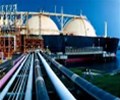LNG imports are now fastest liberalizing sector of Brazil’s gas market

Brazil’s LNG import market is now the fastest liberalizing sector of the country’s so-called new gas market, with private imports of the super-cooled fuel already set to begin ramping up by early next year.
On Wednesday, Brazil’s second privately developed LNG-to-power project met conditions required to finance its completion, moving the project toward commissioning by late first-quarter 2020.
The joint-venture project will see developers Prumo, BP and Siemens draw on US$750 million in financing to complete construction of the 1,300 MW first phase of the Gas Natural Acu complex (GNA) at the Port of Acu in the state of Rio de Janeiro.
A second phase of the US$2 billion project would expand GNA’s capacity to 3,000 MW and include the construction of offshore pipelines, gas processing facilities, a liquids export terminal and an onshore connection to Brazil’s domestic gas grid.
The project is no small addition to Brazil’s future LNG demand.
Upon completion of both phases, the project could consume 295 MMcf/d of imported gas, or more than 2.5 standard-sized LNG cargoes per month, according to an estimate from S&P Global Platts Analytics.

FIRST-MOVER, GOLAR GENPOWER
The most recent private LNG-to-power project in Brazil joins Golar GenPower’s 1,500 MW project in the northeast state of Sergipe, which reached a final investment decision in October 2016.
In July, the project began commissioning at its floating storage and regasification unit, or FSRU.
By January, the project’s developers intend to begin contracted LNG imports, to be supplied by ExxonMobil’s Titan LNG, as well as operations at the facility’s thermoelectric power plant.
Prior to the Sergipe project, LNG imports to Brazil have gone exclusively to Petrobras’ three FSRU import terminals in Rio de Janeiro and the northeast states of Bahia and Ceara.
NEW GAS MARKET
Prior to recent market-opening reforms, Brazil’s state-owned Petrobras held a monopoly in the country’s midstream gas transportation market.
Although private terminal developers were not expressly prohibited from importing LNG under the old market structure, any excess supply sold into Brazil’s domestic market would have to be purchased, transported and distributed by the midstream subsidiaries of Petrobras.
In June, though, Brazil’s National Energy Policy Council, or CNPE, approved regulations that will see the state-led company relinquish its ownership in Brazil’s midstream markets by December 2021.
Just days later, Petrobras said it had reached a compromise settlement with Brazil’s antitrust regulator to sell initial stakes in its gas pipeline import business and smaller shares of its downstream transportation and distribution networks.
Under the new regulations, third parties are already gaining access to the import market. In addition to LNG supply, shippers could soon access imported gas from Bolivia.
Later this year, gas importer Transportadora Brasileira Gasoduto Bolivia-Brasil, or TBG, is expected to hold an open season for about half of the Bolivia-Brazil gas pipeline’s 33 million cu m/d (1.2 Bcf/d) capacity.
Source: Platts

 Hellenic Shipping News Worldwide Hellenic Shipping News Worldwide, Online Daily Newspaper on Hellenic and International Shipping
Hellenic Shipping News Worldwide Hellenic Shipping News Worldwide, Online Daily Newspaper on Hellenic and International Shipping























 PG-Software
PG-Software